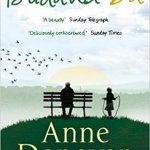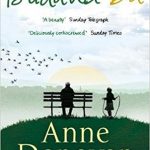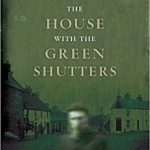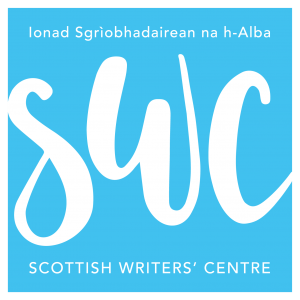For me, novels which use Scots language are some of the most authentic, engaging novels around. The following three texts hail from Ayrshire, Lothian and Glasgow respectively, and showcase the variations in our Scottish tongue.
The House with the Green Shutters by George Douglas Brown
The only novel ever published by George Douglas Brown, this 1901 classic is an essential read which, in my opinion, has not received the recognition it deserves. Angry with what he referred to as the ‘sentimental slop’ which was being written about Scotland at the time, Brown resolved to write a response. The result was this bleak and bloody working class tragedy, which recounts the devastating downfall of the Gourlay family and their house with the green shutters. Set in the fictional village of Barbie in Ayrshire, the Scots dialogue is riveting and Brown’s keen understanding of the complexities of the human condition is second to none. This is one of my favourite novels and I would recommend picking up the 2005 Polygon edition, which has insightful notes, a glossary, and an interesting introduction about Brown written by Dorothy McMillan.
The Panopticon by Jenni Fagan
In this 2012 debut novel by Jenni Fagan, fifteen year old Anais finds herself covered in blood and accused of a crime she cannot remember committing. She is sent to the Panopticon – an ex-prison turned care home for challenging teenagers. There she meets other troubled young people who have been disregarded and forgotten by society. This is a brave, uncompromising novel which truly immerses the reader in the life of Anais and her friends. I don’t think I’ve ever read anything like it. Anais is a witty, memorable, and likeable narrator and, despite the difficult themes (Fagan tackles child abuse in a way which is both uncompromising and harrowing), I found myself unable to put the book down, so eager was I to follow Anais’ journey to the end. The novel uses Lothian dialect, intermittently – one criticism I have of Fagan is that that I feel she should have committed to the tongue wholeheartedly. My other concern is that all her characters speak the same regardless of social standing or background. Otherwise, however, this is a fantastic thought-provoking read, which will leave you thinking about its content long after closing the last page.
Buddha Da by Anne Donovan
Shortlisted for the Orange Prize and Whitbread First Novel Award, Anne Donovan’s ‘Buddha Da’ is reasonably well-known, however, it’s an essential read, for Donovan’s brilliant and entertaining use of Glasweigan dialect. What is particularly impressive about this novel is how its three narrators – husband and wife, Jimmy and Liz, and their daughter Anne Marie – all have distinct, well-established voices. Otherwise a stereotypical Glasgow dad, Jimmy decides one day to visit the Buddhist Centre. Shortly afterwards, to the derision and annoyance of Liz, he becomes vegetarian and celibate. This light-hearted story is a joy to read, and essential for anyone who enjoys reading stories which fully commit to Glasgweigan dialect.
Words by Claire Kennedy






